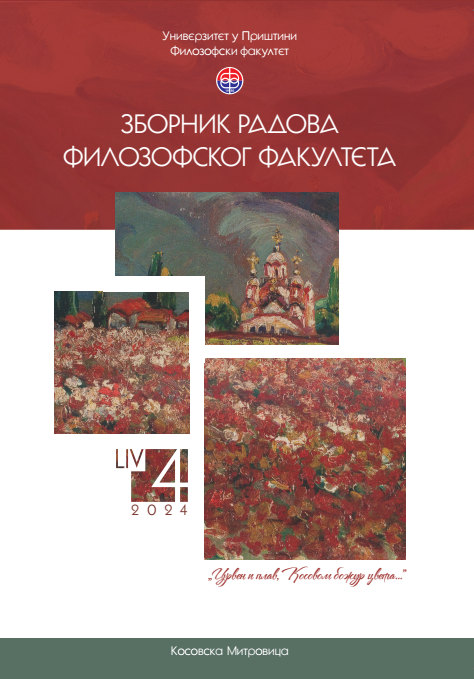„Сва мјеста једнако туђа”: компаративно читање „Беспућа” Вељка Милићевића и „Туђинца” Динка Шимуновића
“All Places Equally Estranged”: A Comparative Reading of Veljko Milićević’s “The Pathless Land” and Dinko Šimunović’s “The Stranger”
Author(s): Sofija TodorovićSubject(s): Comparative Study of Literature
Published by: Филозофски факултет, Универзитет у Приштини
Keywords: modernism; novel; alienation; the uprooted hero; the chronotope of the road.
Summary/Abstract: The paper comparatively examines two South Slavonic modernist novels, Dinko Šimunović’s (1873–1933) “The Stranger” (Tuđinac, 1911) and Veljko Milićević’s (1886–1929) “The Pathless Land” (Bespuće, 1912), with an emphasis on different manifestations of the phenomenon of alienation. A special attention is paid to the analysis of the novels’ specifically shaped, estranged protagonists, Milićević’s Gavre and Šimunović’s Stanko. These existentially “homeless”, resigned melancholics are characterized by a particular kind of uprootedness: they cannot determine themselves, neither in relation to their native soil (which remains factual, but not emotional “homeland”), nor in relation to any other place, or any other aspect of life that could potentially gain satisfaction and a sense of belonging. Firstly, interpersonal relationships and love (Made in “The Stranger” and Irena in “The Pathless Land”) prove to be insufficient to overcome the feeling of estrangement; secondly, the protagonists are alienated from their own memories and personal history; and, finally, in the case of “The Stranger”, the weak will of the aesthetically sensitive protagonist prevents him from creatively producing his intuitive artistic ideas. The novels’ endings with the “self-exile” to America form a kind of circular structure, leaving the protagonists with the same feeling of detachment. Through a parallel analysis of the indicated semantic layers, the aim of the paper is to offer the possibility of a comparative reading of the novels “The Pathless Land” and “The Stranger” and to point out the similarities and peculiarities of the modernist treatment of the uprooted protagonist in the South Slavonic literary context.
Journal: Зборник радова Филозофског факултета у Приштини
- Issue Year: 54/2024
- Issue No: 4
- Page Range: 175-192
- Page Count: 18
- Language: Serbian

